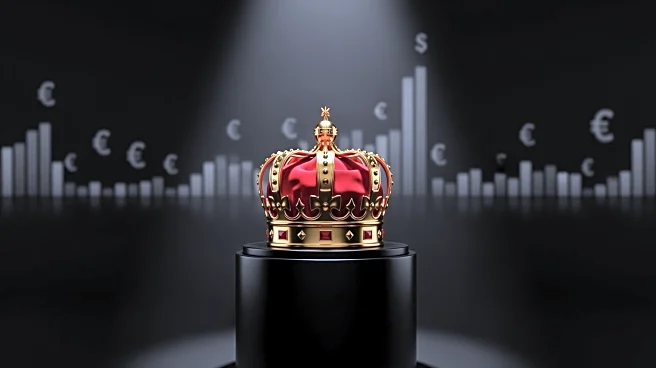What's Happening?
LVMH, the world's largest luxury group, reported better-than-expected sales in the third quarter, driven by increased demand in China. This announcement led to a significant rally in luxury sector shares, with LVMH's stock rising by 12 percent. Other
luxury brands such as Hermes, Kering, Richemont, Burberry, and Moncler also saw their shares increase between 5 and 7 percent. Analysts have noted that LVMH's sales exceeded expectations across all divisions, indicating a positive outlook for the luxury sector. The company highlighted that sales in mainland China turned positive, with consumers responding well to new store experiences, such as the Louis Vuitton boutique in Shanghai.
Why It's Important?
The positive earnings report from LVMH is significant for the luxury industry, which has faced challenges due to economic uncertainties in key markets like the United States and China. The improved demand in China, a major growth driver for luxury goods, suggests a potential recovery for the sector. This development is crucial for luxury brands that rely heavily on Chinese consumers. The rally in shares indicates investor confidence in the sector's recovery, which could lead to increased investments and expansion efforts by luxury companies. The positive outlook may also influence other sectors connected to luxury goods, such as fashion and retail.
What's Next?
The luxury sector is likely to experience a generally better reporting season, as suggested by analysts. Companies may continue to innovate and enhance store experiences to attract consumers, particularly in China. The sector will need to navigate ongoing economic uncertainties, including trade tensions in the U.S. and the property crisis in China. Luxury brands may focus on strategic initiatives to maintain growth momentum and capitalize on the positive market sentiment.
Beyond the Headlines
The recovery in the luxury sector could have broader implications for global economic trends, as luxury goods often serve as indicators of consumer confidence and spending power. The sector's performance may influence related industries, such as tourism and hospitality, which benefit from luxury consumer spending. Additionally, the emphasis on unique store experiences reflects a shift towards experiential retail, which could redefine consumer engagement strategies across various markets.
















